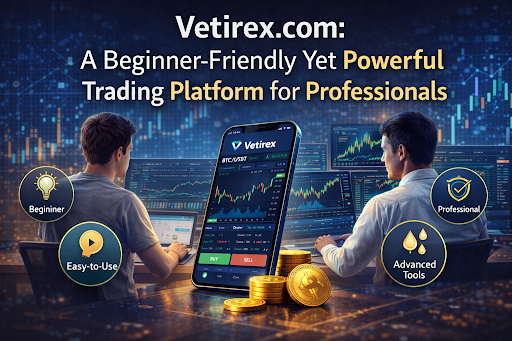Starting a business in the entertainment world can feel like a wild ride. It’s not just about having a cool idea; it’s about knowing how to make that idea a reality. This guide is for anyone looking to break into the entertainment scene as an entrepreneur. We’ll cover how to think like a business owner, plan your moves, and keep things going strong. Think of it as your roadmap to making it in this exciting field.
Key Takeaways
- Develop a mindset that accepts your unique path and understands that setbacks are part of the process. Don’t get discouraged by what others expect; focus on your own journey.
- Know who you’re trying to reach and how to tell them about your business. Building a recognizable brand is important for standing out.
- Being a good leader means knowing your stuff and putting in the effort. Great customer service keeps people coming back.
- Find people who can help you, like mentors and a solid team. Connections really matter in the entertainment business.
- Keep learning and changing as the industry does. Understanding your money is key to keeping your business alive and growing.
Cultivating the Entrepreneurial Mindset

Starting something new in the entertainment world isn’t just about having a great idea; it’s really about the person behind it. Your mindset is the bedrock upon which everything else is built. It’s about how you approach challenges, how you see yourself, and how you deal with the inevitable ups and downs. Think of it as your internal operating system – if it’s not set up right, even the best plans can go sideways.
Embrace Your Unique Path
It’s easy to look at others in the industry and feel like you need to follow their exact footsteps. But here’s the thing: your journey is yours alone. Trying to be someone else is exhausting and, frankly, won’t lead to genuine success. What makes you different is your strength. Don’t let anyone talk you out of your own dreams; they don’t know your story or your potential. Focus on what makes you tick, what problems you want to solve, and build from there. This is how you create something truly original and lasting. Remember, your personal DNA is your superpower.
The Power of Zero Expectations
This might sound a bit backward, but letting go of rigid expectations can be incredibly freeing. When you’re not tied to a specific outcome, you’re more open to possibilities and less crushed when things don’t go exactly as planned. You only have control over your own actions and reactions, not the results or what others do. This approach helps you stay present and adaptable, rather than getting stuck on a predetermined path. It allows you to appreciate the process and learn from every step, good or bad.
Resilience Through Setbacks
Failure isn’t the opposite of success; it’s often a stepping stone towards it. In entertainment, you’ll face rejection, projects might fall through, and plans will definitely change. The key is how you bounce back. Instead of seeing setbacks as dead ends, view them as opportunities to learn and adjust. Did a pitch fall flat? Figure out why and refine it. Did a project get canceled? See what lessons you can take to the next one. Building this ability to recover and keep moving forward is what separates those who make it from those who don’t. It’s about persistence and not letting the tough times derail your long-term vision.
Strategic Foundations for Entertainment Ventures
Getting your entertainment venture off the ground means having a solid plan before you even start. It’s not just about having a cool idea; it’s about making sure that idea actually connects with people and can stand on its own two feet.
Understanding Your Target Audience
First things first, you really need to know who you’re trying to reach. Who are these people? What do they like? What problems are they trying to solve, or what kind of escape are they looking for? If you’re making music, who’s listening? If it’s a film, who’s buying the tickets? Getting this clear helps shape everything else. Knowing your audience is like having a map before you start a road trip. It stops you from just driving around aimlessly. You can figure out where to find them, what kind of message will grab their attention, and what platforms they actually use. For example, if you’re targeting Gen Z for a new streaming show, you’re probably not going to advertise on Facebook. You’d be looking at TikTok or Instagram. It’s about meeting them where they are.
The Art of the Pitch
Once you know who you’re talking to, you need to be able to tell them about your project in a way that makes them excited. This is your pitch. Whether you’re talking to investors, potential partners, or even just trying to get people to check out your work, a good pitch is key. It needs to be clear, concise, and compelling. What’s the core of your idea? What makes it different? What’s the potential? Think of it like this:
- The Hook: Grab their attention immediately. What’s the most exciting part?
- The Problem/Opportunity: What need does your project fill?
- The Solution: How does your project address that need?
- The Ask: What do you need from them (money, partnership, attention)?
Many entrepreneurs find pitching stressful, but it’s a skill that gets better with practice. Watching shows like Entrepreneur Elevator Pitch can give you some ideas on how to structure your own.
Building a Strong Brand Identity
Your brand is more than just a logo or a catchy name. It’s the feeling people get when they interact with your project or company. It’s your reputation. For an entertainment venture, this could be the overall vibe of your music, the visual style of your films, or the community you build around your content. Consistency is super important here. If your brand promises high-energy action, but your content is slow and quiet, people will get confused. You want people to know what to expect and feel a connection to what you’re doing. Think about how you want people to talk about you when you’re not in the room. That’s your brand. It’s about creating something memorable that people want to be a part of, and that starts with a clear vision of who you are and what you stand for.
Navigating the Business Landscape
Starting something new in the entertainment world can feel like trying to find your way through a maze, right? You’ve got the big idea, but then comes the actual doing. It’s not just about having a cool concept; it’s about making it work in the real world. This means you need to be a good leader, know how to get things done, and treat people well.
Essential Leadership Qualities
Being a leader in entertainment isn’t just about being the boss. It’s about guiding your team and making sure everyone is pulling in the same direction. You need to be able to make tough calls, but also listen to your crew.
- Vision: Know where you’re going and get others excited about it.
- Integrity: Be honest and fair in all your dealings.
- Adaptability: Things change fast in entertainment, so you need to roll with it.
- Communication: Keep everyone in the loop, clearly and often.
The Importance of Hustle and Talent
Let’s be real, talent gets you noticed, but hustle keeps you going. You can have the best idea or the most amazing skill, but if you don’t put in the work, it won’t go anywhere. Think about it: that amazing escape room you visited? Someone put a lot of effort into designing every puzzle and clue. It’s that drive, that willingness to go the extra mile, that separates those who dream from those who achieve. You have to be willing to put in the hours, even when it’s not glamorous. It’s about showing up, day after day, and pushing your project forward.
Customer Service Excellence
In entertainment, your audience is everything. If they aren’t happy, nothing else matters. Treating your customers well isn’t just a nice thing to do; it’s how you build a loyal following. This means being responsive, solving problems quickly, and making people feel appreciated. A good experience can turn a one-time visitor into a lifelong fan. It’s about making them feel like they’re part of your story, not just a number. Remember to ask for feedback and actually use it to get better. People notice when you listen.
Leveraging Resources and Networks

Building a business in the entertainment world isn’t just about having a great idea or a killer product. It’s also about knowing who to talk to and how to get the help you need. Think of it like this: you wouldn’t try to build a movie set all by yourself, right? You need a crew, and in business, that crew comes from your network and the resources you can tap into.
Seeking Mentorship and Guidance
Having someone who’s been there before can make a huge difference. A mentor can offer advice, share their experiences, and help you avoid common pitfalls. They’ve already walked the path, so they know where the potholes are. Finding a good mentor isn’t always easy, but it’s worth the effort. Look for people who are successful in areas you want to grow in and who seem willing to share their knowledge. Sometimes, just asking nicely can open doors. You might be surprised how many experienced professionals are happy to help out newcomers, especially if they see passion and a good plan. Don’t be afraid to reach out to people you admire; you never know what might come of it. It’s a good way to get some real-world advice that you can’t find in books. You can also find great advice from resources like Forbes Business Council.
The Role of Connectivity in Entrepreneurship
Your connections are like your business’s lifeblood. The more people you know, and the stronger those relationships are, the more opportunities you’ll have. This means going to industry events, joining online communities, and just generally being open to meeting new people. It’s not just about collecting business cards; it’s about building genuine relationships. These connections can lead to partnerships, new clients, or even just a friendly ear when you need to bounce around an idea. Think about it – who you know can often open doors that hard work alone can’t. Building these relationships takes time and consistent effort, but the payoff can be massive.
Building a Trusted Team
No one succeeds alone, and that’s especially true in entertainment. You need people around you who believe in your vision and have skills that complement yours. When I started my own company, I made sure to only bring on individuals who were highly recommended and with whom I had a good personal connection. This approach helped me slowly let people into my inner circle and build a team that I could really trust. It’s important to find people who are not only talented but also reliable and share your work ethic. Your team is the backbone of your business, and having the right people in the right roles is critical. Look for team members who share your vision, have complementary skills, and are committed to working hard.
Growth and Sustainability in Entertainment
So, you’ve built something cool in the entertainment world. That’s awesome. But how do you keep it going? It’s not just about that initial spark; it’s about making sure your venture sticks around and actually grows. Think of it like tending a garden – you can’t just plant the seeds and walk away. You’ve got to water it, pull the weeds, and give it the right conditions to thrive.
Actionable Steps for Success
What does that look like in practice? Well, for starters, you need a plan. It sounds obvious, but so many people skip this. You need to know where you’re headed.
- Define clear, measurable goals. What does success look like in six months? A year? Five years? Be specific.
- Break down big goals into smaller tasks. This makes them feel less overwhelming and gives you little wins along the way.
- Regularly review your progress. Are you on track? If not, why? Adjust your plan as needed. It’s okay to change course.
The most important thing is to keep moving forward, even when things get tough. Don’t get discouraged if you don’t see results immediately. Building something lasting takes time and consistent effort.
Adapting to Evolving Trends
The entertainment industry changes faster than most. What’s hot today might be old news tomorrow. You have to stay aware of what’s happening. Are people watching content differently? Are new platforms popping up? For example, I’ve noticed a big shift towards audio content, so we’re making sure our publications have audiobook options now. It’s about staying relevant and giving people what they want, even if it’s a bit different from your original idea. You have to be willing to tweak your products or services to keep them appealing. It’s not about abandoning your vision, but about making sure your vision can adapt to the world around it. You can find great examples of leaders who have done this by checking out shows like The CEO Series.
Financial Acumen for Entrepreneurs
Let’s talk money. You can have the best idea in the world, but if you can’t manage your finances, it won’t last. This means understanding your numbers. How much money is coming in? How much is going out? Where is it going? You need to know your profit margins, your expenses, and your cash flow. It’s not about being a math whiz, but about being smart with your resources. Think about creating a simple budget and sticking to it. Track your spending. And please, don’t spend more than you earn. It sounds basic, but it’s a pitfall for many. Being smart with money from the start sets you up for long-term stability.
Personal Development for the Modern Entrepreneur
Being an entrepreneur in the entertainment world isn’t just about having a killer idea or a great product. It’s also about taking care of yourself, the person behind the business. Think of it like this: you’re the engine, and if you’re sputtering, the whole car is going to have problems. So, let’s talk about how to keep that engine running smoothly.
Balancing Personal and Professional Growth
It’s easy to get caught up in the hustle, working late nights and weekends. But you can’t pour from an empty cup. Finding a balance means setting boundaries. Maybe it’s a strict
Keep Building, Keep Growing
So, you’ve got the ideas, the drive, and now a clearer picture of how to make things happen in the entertainment world. It’s not always going to be easy, and there will be days you question everything. But remember why you started. Keep learning, stay adaptable, and don’t be afraid to ask for help or connect with others who are on a similar path. Building a career in entertainment takes grit, but it’s totally doable. Just keep putting one foot in front of the other, and you’ll get there.
Frequently Asked Questions
How do I figure out who my audience is?
Think about who you want to reach with your entertainment idea. What do they like? Knowing this helps you create something they’ll enjoy and makes it easier to tell them about it.
What makes a good brand for my business?
A strong brand is like your business’s personality. It’s what makes you stand out. Think about your logo, your style, and the message you want to share. This helps people remember you.
What are important leadership skills for business owners?
Being a good leader means being honest, making smart choices, and helping your team do their best. It’s about guiding everyone toward the same goal.
Why is it important to find a mentor?
When you’re starting out, don’t be afraid to ask for help from people who have done it before. Mentors can give you great advice and guide you through tough spots.
Is talent enough to be successful, or do I need to work hard too?
Success means working hard and not giving up when things get tough. Even if you’re talented, you still need to put in the effort to keep growing and stay relevant.
How can I be good with money in my business?
It’s smart to save money and understand how your business makes and spends it. Knowing your numbers helps you make good choices and keep your business healthy.














